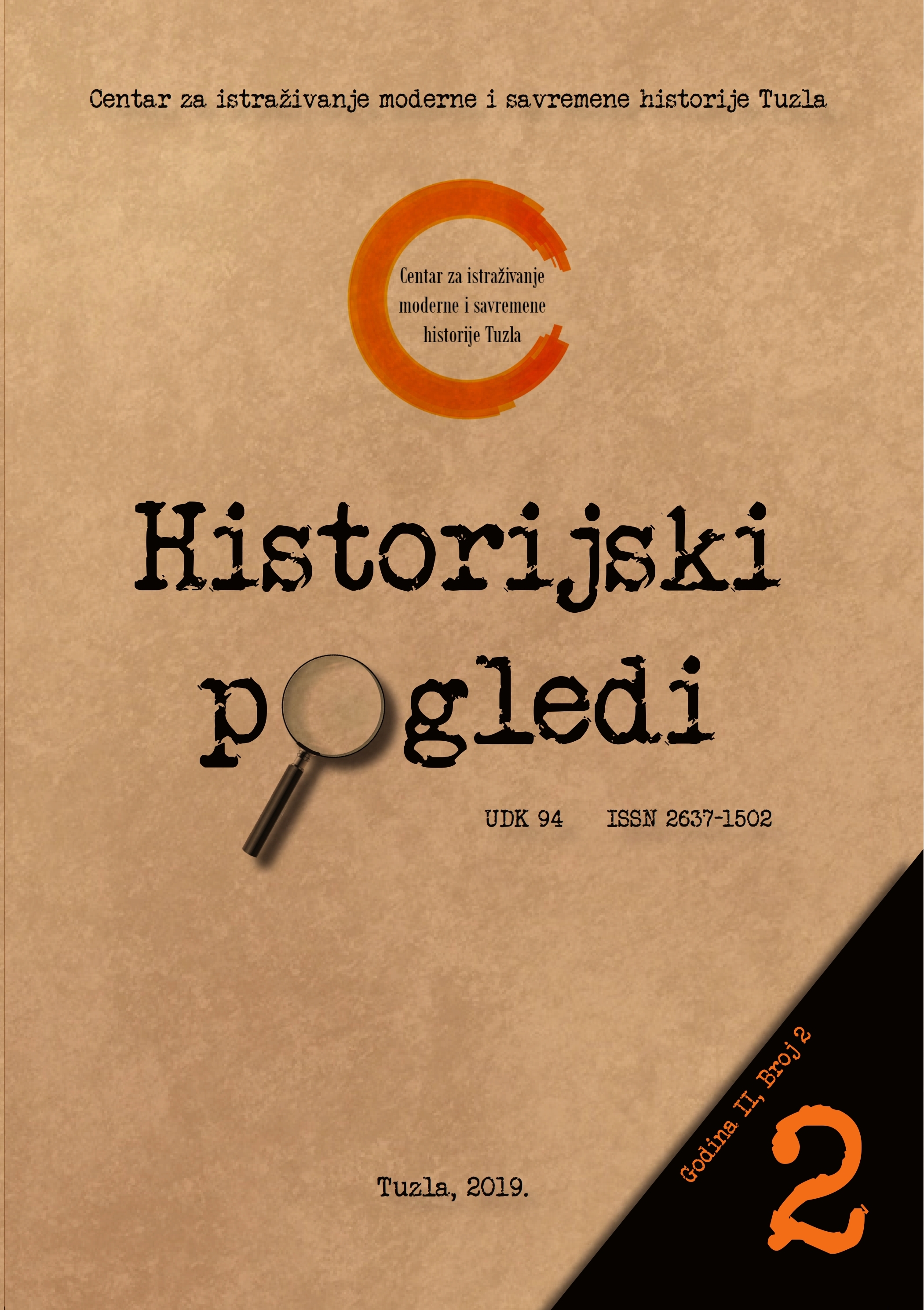IBRAHIM EF. FEJIĆ - PRVI REISUL-ULEMA U TITOVOJ JUGOSLAVIJI
IBRAHIM EFFENDI FEJIĆ – THE FIRST REIS-UL-ULEMA IN TITO`S YUGOSLAVIA
Author(s): Denis BećirovićSubject(s): Cultural history, Political history, WW II and following years (1940 - 1949), Post-War period (1950 - 1989)
Published by: Centar za istraživanje moderne i savremene historije Tuzla
Keywords: Reis-ul Ulema; Ibrahim effendi Fejić; Islamic Community; Yugoslavia; Bosnia and Herzegovina; Bosniaks; Muslims; religious communities; practising believers and the State;
Summary/Abstract: Reis Ibrahim effendi Fejić was a man of great intellect, a brave and daring intellectual, a man who unselfishly advocated for public interests, an outstanding scholar of spirituality and tradition in Bosnia and Herzegovina. He was a good philologist and polyglot. He was fluent in Arabic, Turkish and Persian, and he also used German. He was also engaged in publishing, working with many religious and state magazines and newspapers. He was a major supporter of reforms in religious and religious-educational life led by Reis-ul-Ulema Mehmed Džemaludin Čaušević. During the Second World War he committed himself to the National Liberation Movement, actively participating and bravely raising his voice against the crimes and persecution of innocent people no matter what religion or nation they belonged to. Five members of his family even gave their lives in the fight against fascism and for the liberation of the country. He held the Reis-ul-Ulema position in the period between 1947 and 1957, when he retired having reached a ripe old age. Despite the complex historical circumstances after the Second World War, Reis-ul-Ulema Ibrahim effendi Fejić carried out a series of activities aimed at improving the organisational, infrastructural, educational, cultural and religious circumstances within the Islamic community. With regard to emerging opportunities, marked by the narrowing of religious rights and freedoms, Reis Fejić invested a lot of energy and knowledge to preserve the basic functions of the community. Furthermore, he stood out as a tolerant man in his work, who worked on building good-neighbourly relations with other religious communities and preventing revanchism in the post-war period.
Journal: HISTORIJSKI POGLEDI
- Issue Year: II/2019
- Issue No: 2
- Page Range: 278-299
- Page Count: 22
- Language: Bosnian, Croatian, Serbian

